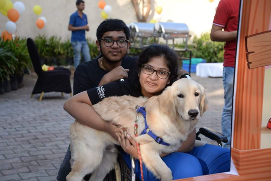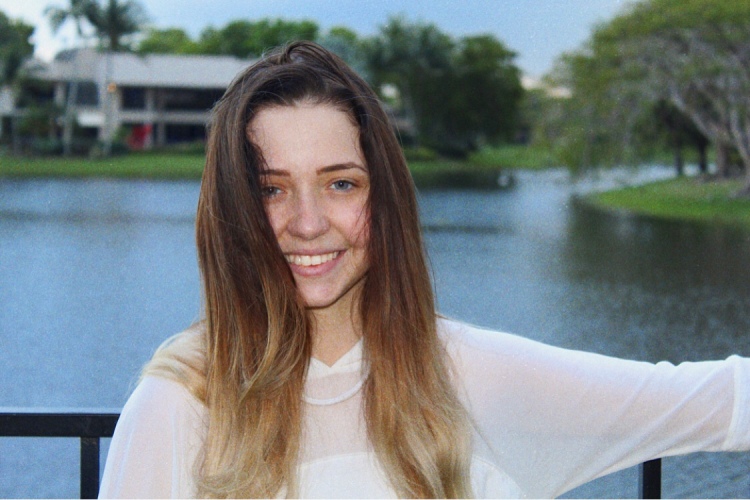Hi, my name is Hasitha and I am a FA’er in India. I was diagnosed with Friedreich’s Ataxia when I was 10. This diagnosis took a mental toll that lasted all of my childhood but, it shaped me into a beautiful young adult. FA is a genetic disorder that basically affects our balance, coordination, and movement. To know more about it, I repeatedly write in my blog, Lifewithhasi.com.
I’m a graduate in Biotechnology and looking to do my PhD in neuroscience or genetics even. After the pandemic, all universities have been shut and I thought of following my interests during these times. My passion for writing led me to start a blog at Lifewithhasi.com and courageous personality made me start a youtube! I use both of these platforms to raise awareness not only about FA but, disability in general!
Youtube link: https://www.youtube.com/channel/UC_uhC5nYOxYQefcIwZpfxeg

Social Issues for people with disabilities in India
As a wheelchair user living in India, I feel that more than the disease itself, the problem lies with the environment that surrounds us and the society we live with. I am pretty confident and experienced now but, initially, I had a tough time dealing with my inner battles as well as the nosy Indians.
Human Etiquettes
In India, people often have their own notions about people with disabilities. Apart from their constant, sympathetic stares, they believe that disabled individuals have zero potential. They often discriminate us and some even rudely deny us to enter their place! I understand that the human brain is constantly curious. But, it is not polite for a random stranger to come up to me and ask me, “What’s wrong?” If I would get a dollar every time a person questioned me then, I’d be a millionaire!
Environment
It is not at all accessible in India. As a girl who loves to travel; I’m disappointed by most of the accommodations and I would end up being carried anywhere that I need to go. The wheelchair makes me independent but, the environment is making me more dependent on my fellow Indians. Some places are accessible but, they are mostly expensive places like 5-star hotels, malls, and airports. Man, it is expensive to be disabled!
Apart from that, the accessible washrooms tend to not work or be occupied by abled-bodies which is so insensitive!

Employment
India is overpopulated and has billions of people living in this country. Due to the competition, it is difficult for an average Indian to get a job. People with disabilities tend to get rejected as soon as they come to know about their condition. However, some companies are working toward diversity and inclusion but, most are left unemployed.
Treatment
India has a range of medicines. Apart from allopathy, there is homeopathy, Ayurveda, and many more which I have tried. All are nothing but false hopes. Indians are deeply connected to god and they believe mantras and all which can cure FA. All of these drive me nuts, but my hope is only toward the research happening in the USA on gene therapy.
The main problem is a disability is a spectrum and many fail to acknowledge that FA has a genetic cause. Anyway, these multiple trials and errors have taught me the importance of expectation. To know more about that, I’ve written about the bitter truth behind hope here: https://www.inkspiremag.com/2020/03/creative-non-fiction-renovating-meaning.html
The FA Community
What makes me envious about the USA is that they made a community for FA, there are activities they do and together they spread awareness. There is nothing of that sort in India. All the people that I’ve met online and some I became close enough to meet. I really wish to meet the community when I do travel to the USA.

Conclusion
I always wished for India to become more like the USA (As I spent most of my years there) in terms of inclusion as well as accessibility. I’ll be posting Olivia’s version of living with FA in the USA at lifewithhasi.com so please check it out!
I have youtube and Instagram where I actively spread awareness on the difficulties we disabled individuals face. Please support me. Thank you!
IG: https://www.instagram.com/turning._.point_/
Youtube: https://www.youtube.com/channel/UC_uhC5nYOxYQefcIwZpfxeg
-Hasitha






















